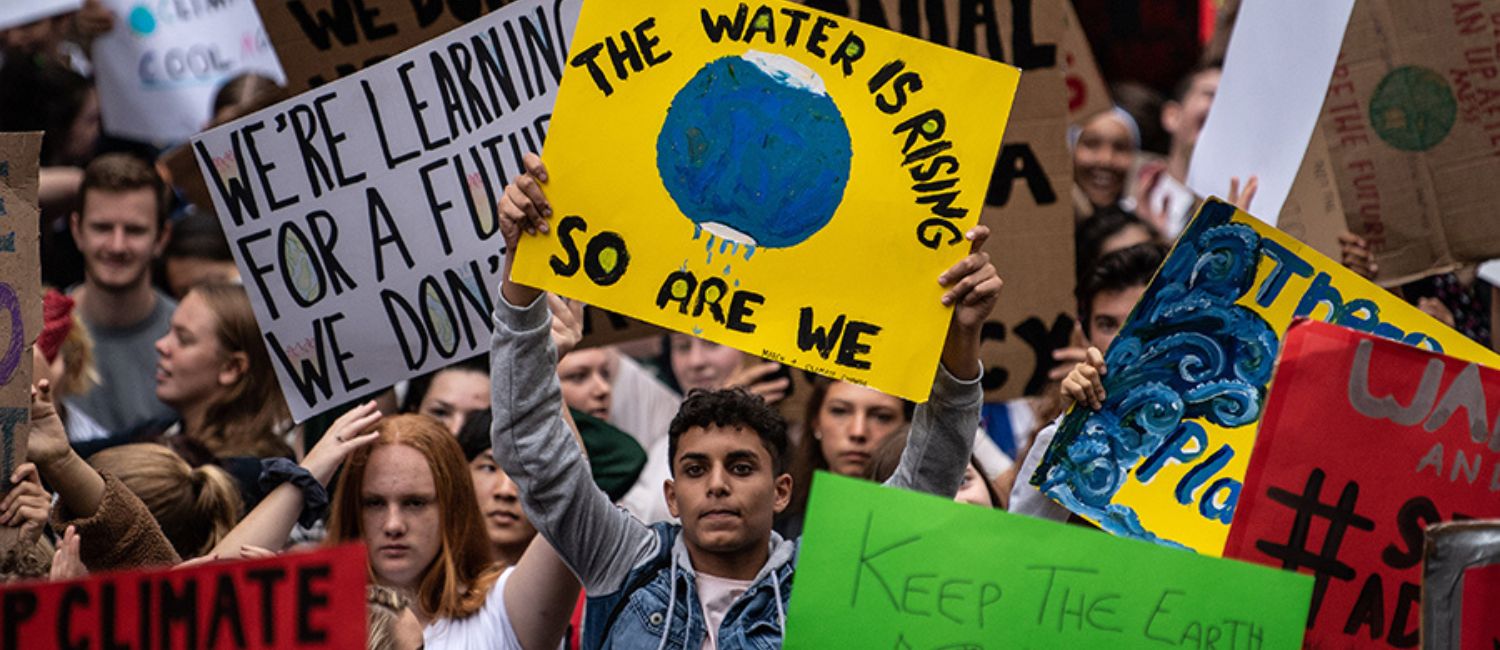2025. Kiribati is drowning. Los Angeles is burning. Right here in Aotearoa, extreme weather events are becoming a part of life. It’s a dystopian entry into a dark future that young adult writers thought they were only dreaming of – but climate change is a very real concern. With that very real concern comes very real anxiety. In 2023, nearly 31% of people aged 16-24 reported feeling “very worried” about climate change, a statistic that is only growing as the situation becomes more and more dire. Climate change defines our generation. But what do we do when this definition of Generation Z becomes encapsulating, limiting, and all-consuming?
The trouble with climate anxiety is that it’s the furthest thing from irrational. It’s not a mental illness that can be addressed through the psychological conventions that tackle traditional anxiety disorders. It’s not a catastrophe that is made up in the patient’s head, not a worry that can be minimised. To discourage worrying about the climate reads as discouraging awareness of what is actually going on in the world. A reality check will not ground a climate worrier. Instead, it will send them spiraling deeper into anxiety, an anxiety that becomes unproductive. What climate anxiety often creates is not an activist who strives to make change. At a rising rate, young people who worry about the environment often turn to fatalism, avoidance, and eventually, nihilism. Why bother striving for sustainability when one’s efforts to use paper straws and take shorter showers are matched with Taylor Swift’s 225 flight hours in a private jet? As carbon emissions continue to rise and we see the effects of climate change more and more often, the efforts of the average young person appear futile. Hopeless. Endless.
The goalposts of sustainability move faster than what we can realistically keep up with, and the responsibility of climate action tends to fall more and more on the consumer. The extent of middle-class climate action used to be simply recycling more and using both sides of the paper. Now, it’s buying reusable everything, buying the more ‘eco-friendly’ brands, keeping watch of which eco-friendly brands are actually eco-friendly and which ones are just greenwashing, becoming vegetarian, becoming vegan instead, actually not becoming vegan because it’s worse for the planet, but still not eating meat because that’s animal cruelty, but also getting in enough protein, but also not eating tofu or drinking almond milk or oat milk or anything at all, because no matter what you do, you’re actively killing the planet. Environmental perfectionism is exhausting, but the all-or-nothing approach of many climate activists make it difficult to find your footing in environmental spaces.
I’m not going to sit here and deny personal responsibility towards caring for the environment – climate change is everyone’s problem – but the militancy of the current state of climate action makes it unapproachable. When we concern ourselves more with appearing to be a perfect activist than we concern ourselves with our cause, we push people away from making small, sustainable lifestyle changes. All that they’re left with is a crippling sense of anxiety, a sense of impending doom for the future that is about to come. Perfectionism is limiting because it sets us up for failure. In vowing to quit meat cold-turkey, you don’t plan for the moments where you just can’t help but give in. When that happens, you’re no longer the perfect little vegan – you’re a failure, a climate traitor, and you can just feel the methane gas released from the beef and dairy industry rising up and collecting in the atmosphere. It’s frightening, despair-inducing, and shameful. You want to avoid this shame, so what do you do? You give up. But you don’t just forget what’s happening to the planet – you don’t turn off the news, you don’t become blind to the extreme weather events less than 200 km from your home. The anxiety doesn’t leave you, nor does the guilt that you’re not doing enough – because no matter what you do, you never can be good enough.
Do not be mistaken – the most infuriating thing about climate anxiety is not that people give up on caring for the environment. It’s that climate change becomes a worry of the people, not a worry of corporations. The consumer will continue to blame themselves and feel guilty about filling up their car with petrol to travel to work rather than spending an extra hour on public transport. In their own self-loathing, the consumer will forget the fast food chains that produce mass amounts of food waste, mass amounts of greenhouse gases, mass amounts of deforestation.
We blame ourselves for supporting these companies, but we do not blame governments for not controlling them. We try in vain to control every bit of the transport chain that gives us our necessities and luxuries, all while corporations lobby governments to loosen the rules and restrictions, to lower tax rates, to do as little for the environment as humanly possible. We let climate change take over our lives, so that the people in charge do not have to bear the burden. They paint climate activists as crazy, so that when they cry out to the government for help, help for all of humanity, we look at them side-on, thinking that there’s nothing that can be done to set the course of our species in the right direction. While legislation doesn’t change, we as the people feel the weight of the literal world on our shoulders. We define ourselves as a generation that cares about the environment, a generation that will enact change, a generation that will be the leaders of tomorrow. While the planet melts before our eyes, this future responsibility becomes a burden too heavy to bear. It’s a burden that keeps us up at night, anxiety only becoming more and more prominent in our lives.
Let’s change the narrative. Why should we, the people, bear the anxiety of the climate? Why should we feel guilty for buying a plastic water bottle when companies use sustainability as nothing more than a marketing strategy? The problem with merely worrying about the environment is that it prevents us from feeling what we should really feel: a sense of togetherness. As a humanity, we will all have to deal with the repercussions of climate change together. As a humanity, we must demand legislative climate action. Governments exist to serve us, not the other way around. Climate change is the worry of our generation – but we can also make it the cause.
Cerys Gibby, Year 13


